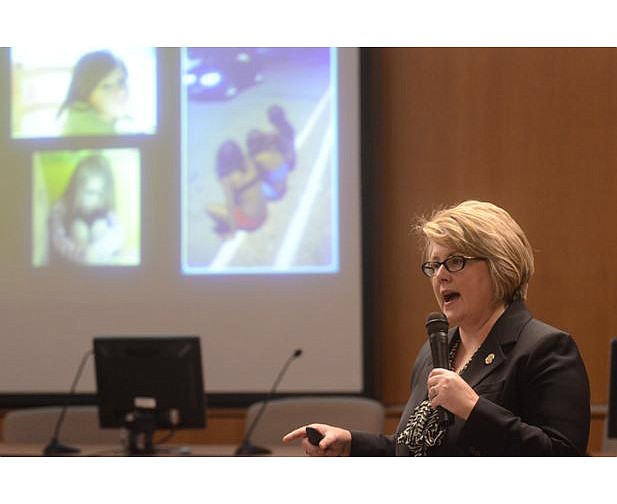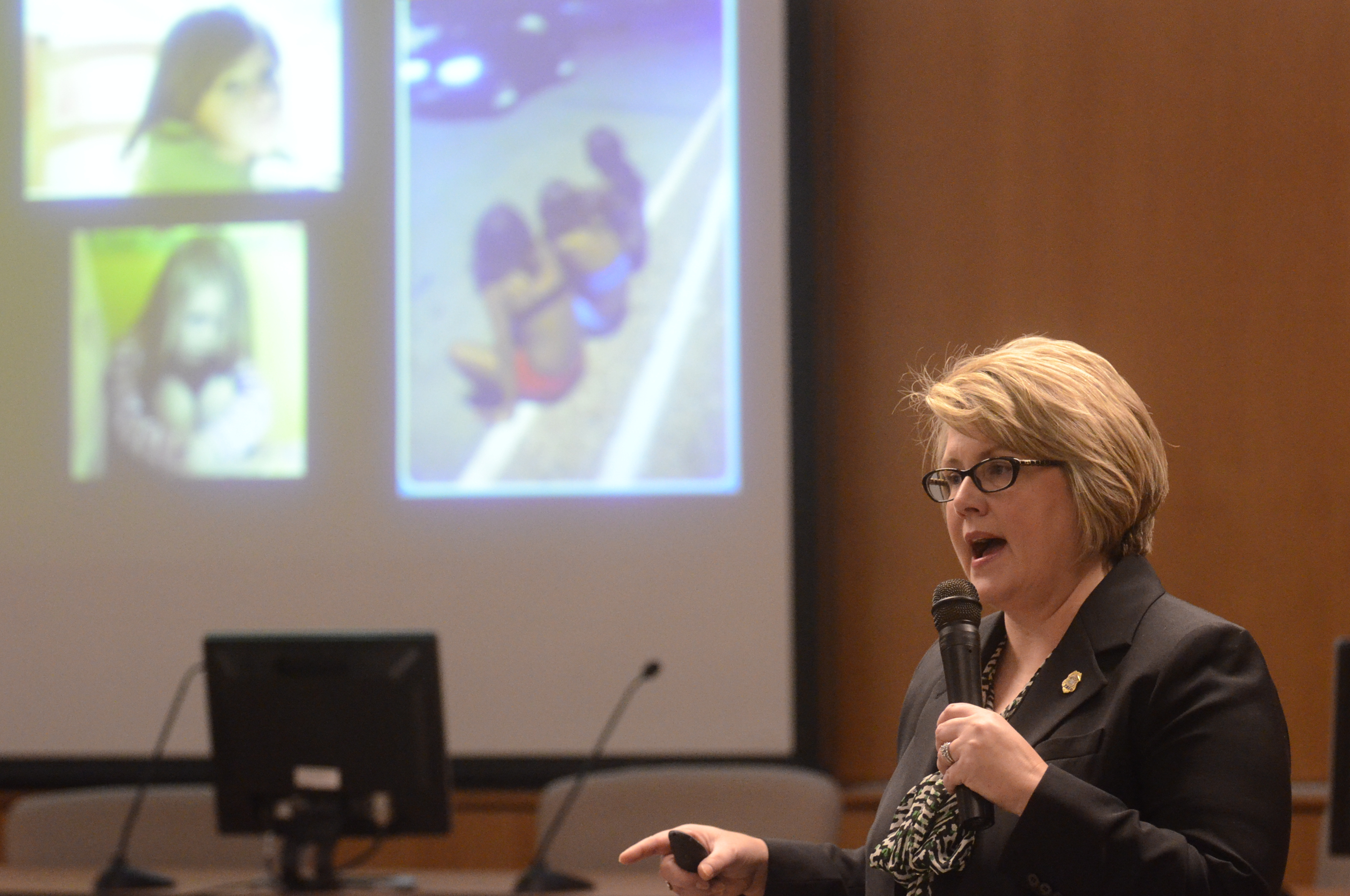Sex traffic hotlineTo reach the hotline, call 1-855-558-6484.
Though a 2011 study reported more than 100 people were victims of human trafficking in Hamilton County, as of this week a statewide hotline had received 28 phone calls.
"We don't get a whole lot of calls on the hotline, frankly, because nobody knows about it," said Margie Quin, assistant special agent in charge of the Tennessee Bureau of Investigation, which conducted the study. The hotline was set up in October 2011.
Quin was among state and local officials, including Tennessee Bureau of Investigation Director Mark Gwyn and Rep. Eric Watson, R-Cleveland, who participated Friday in a town hall-type meeting on human trafficking in Tennessee.
The Women's Fund of the Greater Chattanooga has launched an awareness campaign to get the word out about the hotline, she said.
Calls received at the hotline ring to the Tennessee Fusion Center -- a communication office connecting state agencies.
"We are prepared to offer victim services. We are not going to run out and arrest victims. Frankly, we've got more to do," Quin said.
In the statewide survey, no local law enforcement agencies reported cases of trafficking. Local law enforcement recorded its first case of sex trafficking this week, when a 21-year-old Baltimore woman borrowed a cellphone to call police near Interstate 75.
The survey compiled its figures from social service agencies that serve victims.
Employees with the Department of Children's Services documented six to 15 cases of children trafficked and 51 to 100 cases of adults trafficked in 24 months, according to the results.
During the town hall meeting, FBI Special Agent Leane Blevins questioned the validity of the survey results.
"It begs the question: How much of that reporting had been vetted?" she said.
"We had a six-month window, you have to understand, to have the report out so we did not vet every case that was reported across the state," Quin said. "We did define human trafficking the way we define it here for you today. So the people who answered the survey, answered it based on those technical definitions."
State law defines human trafficking as someone who recruits, harbors, transports or obtains a person for labor services by forcing him or her into servitude.
Quin said there have been other studies conducted with similar findings which lend legitimacy to the joint TBI and Vanderbilt University study.

